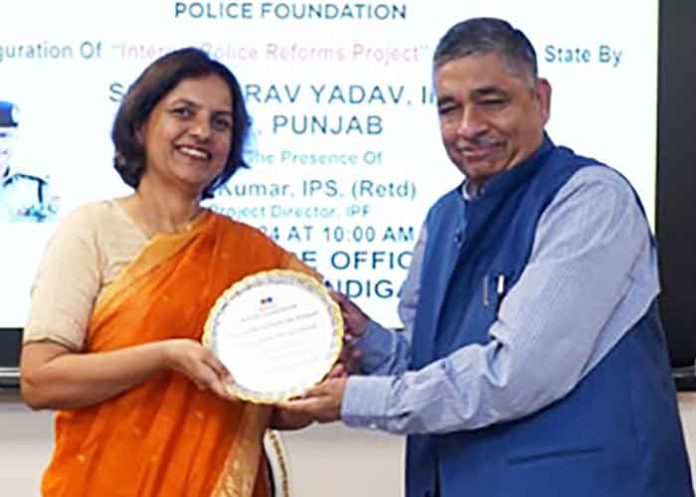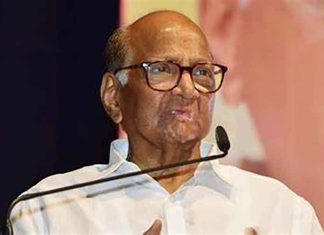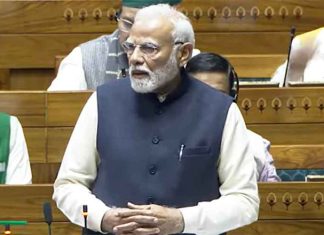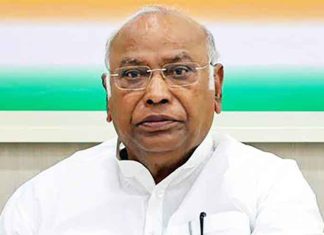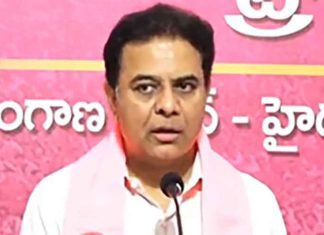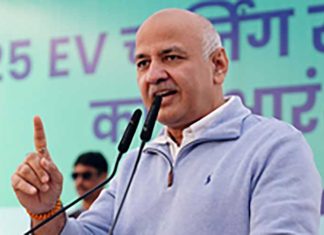Chandigarh, Sept 23, 2024 (Yes Punjab News)
With an aim to transform citizen-centric policing initiatives especially at police station level as per the directions of Chief Minister Bhagwant Singh Mann, Punjab Police on Monday launched an Indian Police Foundation Project on Internal Police Reforms making Punjab the first state to launch such project.
This groundbreaking initiative focuses on improving complaint/FIR registration, improving police response, behaviour and conduct ,minimising harassment, citizen services, community engagement.
The project was formally inaugurated by Special Director General of Police (Special DGP) Community Affairs Division Gurpreet Kaur Deo under the guidance of Director General of Police (DGP) Punjab Gaurav Yadav at the Punjab Police Officer’s Institute (PPOI) here.
She was accompanied by Vice President of the IPF and Project Director of this project IPS (Retd) Dr. Ish Kumar, DIG Roopnagar-cum-State Nodal Officer for this project Nilambri Jagdale and ADGP (Retd)-cum-Project State Supervisor Gursharan Singh Sandhu.
Special DGP Ishwar Singh, Special DGP Arpit Shukla, ADGP G Nageswara Rao, ADGP AS Rai, Deputy Commissioner SAS Nagar Ashika Jain, SSP Rupnagar Gulneet Singh Khurana and SSP SAS Nagar Deepak Pareek also attended the launch event.
The project, rolled out by the Indian Police Foundation (IPF) in Punjab will initially cover two districts— SAS Nagar and Roopnagar— with six and nine police stations, respectively and the project’s outreach will eventually expand to the entire state. The project will simultaneously be launched in the states of Tamil Nadu, Telangana, and Chhattisgarh.
Special Director General of Police (Special DGP) Community Affairs Divison (CAD) Punjab Gurpreet Kaur Deo, while addressing the gathering, offered fulsome support to the IPF in making this project a huge success. She said that Punjab Police has always welcomed the internal police reforms to give best policing to the people of the state.
She said that Punjab is the first state to launch the SAANJH project, wherein people don’t need to go to the police station to avail basic services like police verification, mobile lost report, etc., rather they can apply for services online from the comfort of their homes.
Alternatively, they can approach citizen friendly SAANJH Kendras, which have public friendly ambience and police officers in civil uniform adjacent to Police Stations across the state. With this initiative, Punjab reaffirms its commitment to citizen-friendly policing and community engagement, she added.
Director IPF Ish Kumar, while addressing the gathering, commended Punjab Police’s SAANJH project, a one-stop destination for public grievances, and announced plans to implement it in other states.
He said that this 10-month research program will involve detailed interviews, group discussions, and questionnaires with complainants, service seekers, victims, accused, witnesses, and civil society members. This comprehensive approach will help identify areas for improvement and recommend reforms, he added.
Meanwhile, the Internal Police Reforms Project aims to enhance professional and ethical standards of police personnel, improve policing quality, service delivery, and democratic values. By establishing standardised operating procedures prioritising citizen rights, professionalism, and transparency, Punjab is pioneering police reforms, setting a benchmark for other states to follow.
FOCUS AREAS FOR INTERNAL POLICE REFORMS
1. Accessibility and Response: Enhance public access to police services and ensure prompt, professional responses to all complaints, including helpline calls (e.g., Dial 112 ). Improve complaint handling efficiency and crime registration.
2. Quality of Investigation: Focus on effective interrogation, accurate statement recording, and scientific evidence collection. Implement amended arrest laws, minimize illegal detentions, prevent unjustified searches, and reduce harassment, especially of women and the elderly.
3. Citizen Services: Simplify and streamline services like permissions, NOCs, licenses, and police verifications. Improve transparency and keep citizens informed.
4. Work Environment: Foster a positive atmosphere in police stations, boost morale through motivation, recognition, and support.
5. Community Policing: Promote initiatives to build trust and cooperation between police and the community, addressing local concerns and maintaining public safety.
6. Police Behaviour: Ensure respectful treatment of complainants and witnesses, improve public accessibility, assist victims, and protect witnesses.
7. Police Training: Enhance training programs to develop professional competence.




